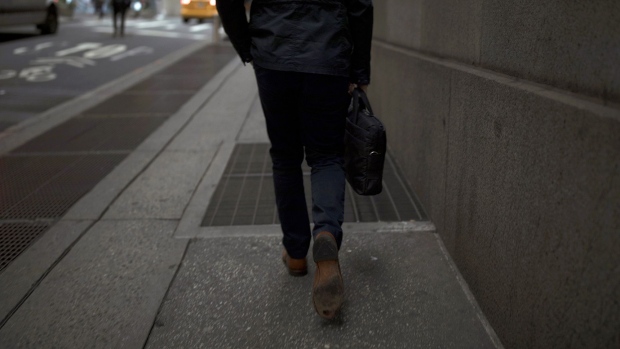Feb 16, 2021
Owl Rock-Dyal Merger Mired in $600 Million Sixth Street Dispute
, Bloomberg News

(Bloomberg) -- A $600 million disagreement is throwing a wrench in the creation of a new investing behemoth.
Sixth Street Partners, a $50 billion investment firm, is asking a court to block Owl Rock Capital Partners’ merger with Dyal Capital Partners until concerns it has about the transaction are addressed. At issue is Dyal’s ownership stake in Alan Waxman’s Sixth Street, which does not want to be affiliated with a rival credit manager like Owl Rock.
Last week, before Waxman’s firm took Dyal to court, it offered to buy back the stake from Dyal, according to people with knowledge of the matter. Sixth Street executives told Dyal on a Zoom call that they would repurchase the ownership piece at the price Dyal paid four years back -- about $420 million -- to resolve the impasse, the people said, asking not to be identified as the information isn’t public.
Dyal balked and has refused to accept that offer, believing its share should be worth more than $1 billion, a near $600 million difference, the people said. The ensuing logjam has now turned into a battle where Sixth Street is seeking an injunction on Dyal’s merger until the issues are ironed out.
Sixth Street is looking to buy its stake at what’s known as “at cost.” That price is also closer to the level Dyal disclosed to its own investors recently, the people said. While Dyal’s fund has marked its interest at about $545 million, its management believes that the stake should be worth about double that price in the event of a sale, given how much Sixth Street’s assets have surged, the people said.
Representatives for Sixth Street and Dyal declined to comment.
Blue Owl
The grappling over a lucrative stake underscores the explosive growth that investment firms dabbling in private markets have seen at a time when investors are pouring money into funds in the hunt for greater gains. While stake sales have enriched founders’ fortunes and provided a path to growth for smaller firms, they can prove thorny as a firm grows beyond its roots.
“We cannot have Dyal as both a competitor and an owner in our business,” Sixth Street said in a letter to investors this week, disclosing its legal action. Dyal was allowed to invest in the firm because it claimed at the time they “would not directly compete with us.”
Sixth Street’s claims are “baseless” and Dyal and Owl Rock will vigorously defend against them, David Wells, a spokesman representing the firms in the merger, said. “Sixth Street is attempting to assert the existence of a consent right that we believe simply does not exist.”
In December, Dyal and Owl Rock caused a stir when they agreed to combine in a complex deal that would see them merge and go public with $45 billion in assets and a new name -- Blue Owl. Dyal’s business relies on taking stakes in other firms, some of whom compete for the same business as Owl Rock, which has fast grown into a dominant player in the direct-lending market.
Dyal has been at the forefront of a major trend reshaping the world of private investments. Firms that buy up companies or lend to them have seen rapid growth but much of the wealth their executives have amassed is illiquid. Dyal has helped unlock fortunes for founders by buying minority stakes in their firms or providing critical capital for growth as they seek to expand.
Owl Rock is an upstart in the world of direct lending with a significant pedigree. The New York-based firm was formed with the backing of three top dealmakers plucked from Wall Street titans Blackstone, Goldman Sachs and KKR.
Its decision to merge follows a 2019 stake sale to Dyal that ascribed a lofty valuation to Owl Rock and cemented its stature as a leading player in the private credit frenzy sweeping the market.
The tie-up of the two firms is wrapped up in another Wall Street fad. The duo is electing to simultaneously merge with a blank-check company. In this case, Altimar Acquisition Corp. a special purpose acquisition company, or SPAC, backed by HPS Investment Partners.
A regulatory filing by Altimar in January highlighted the risk that a firm in which Dyal has a stake may object. Such firms could seek remedies if they view Owl Rock as a competitor, including forcing Dyal to sell its interest.
San Francisco-based Sixth Street makes credit and equity investments across a range of strategies. When Dyal bet on Sixth Street in 2017, it was the credit affiliate of buyout giant TPG. It has since more than doubled its assets and ended the partnership with TPG, freeing the firm to pursue a wider array of deals.
©2021 Bloomberg L.P.